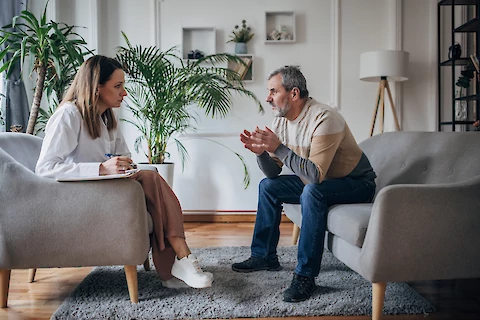
Depression is a topic that's often discussed in relation to younger populations. However, it's equally relevant, if not more so, among senior citizens. Unfortunately, it is not uncommon for Major Depressive Disorder (MDD) to be misunderstood or overlooked when it occurs in older adults. That's why it's so vital to shed light on this under-discussed yet critical issue. Armed with knowledge and understanding, we can outline practical and effective strategies for managing MDD symptoms. Mental health and well-being should remain a top priority at every stage of life.
Understanding Major Depressive Disorder (MDD) in Seniors
Major Depressive Disorder (MDD) is a mental health condition characterized by three main things. People tend to experience persistent feelings of sadness, loss of interest in previously enjoyed activities, and a marked decrease in energy. However, it's essential to recognize that for our senior population, the manifestation of MDD might present differently than in younger individuals. Seniors may exhibit more physical symptoms than usual. They may feel fatigued, have sleep disturbances, or experience unexplained aches. This makes MDD less obvious but equally impactful.
Misconceptions About Mental Health in Seniors
There's a common and wrongheaded belief that depression is simply part of growing older. It isn't. Aging doesn't inherently cause depression, and it's necessary to eradicate this misconception for more effective mental health care. Another myth is that seniors are supposed to feel lonely, which can sometimes lead to dismissing signs of MDD as “just part of aging.” This misunderstanding can delay diagnosis and treatment, often at the expense of seniors' well-being and vitality.
Managing Symptoms of Depression in Seniors
As with any health-related issue, early detection and management are pivotal in managing MDD. For seniors, staying socially engaged is a robust strategy against depression. Family and friends play a crucial role. They can offer emotional support, ensure regular social interactions, and intervene when they observe signs of distress. On a personal level, maintaining physical health through regular exercise, balanced nutrition, and adequate rest can also positively impact mental health.
The Importance of Seeking Professional Help
Despite the best efforts of loved ones and self-care strategies, professional help is often necessary to navigate the intricacies of MDD, particularly in older adults. Importantly, seniors dealing with MDD should not have to fend for themselves. Psychiatrists, psychologists, and geriatricians can offer expert support. Medications, therapy, and lifestyle interventions provide a holistic approach to managing MDD.
Work With Senior Helpers Riverside
Recognizing and addressing Major Depressive Disorder in older adults is a necessary conversation that we must all be ready to have. With accurate information, proactive strategies, and professional support, seniors dealing with MDD can live with dignity, joy, and a high quality of life. The first step is understanding, and the next is taking action.
For anyone living in Riverside, Hemet, Moreno Valley, or San Jacinto, seeking help for an elderly loved one dealing with MDD has been made simpler by the assistance provided at Senior Helpers Riverside. Our expert team is well-versed in helping seniors deal with their mental health, and we are dedicated to ensuring that seniors receive the professional help they need to live fulfilling lives. Contact us today.